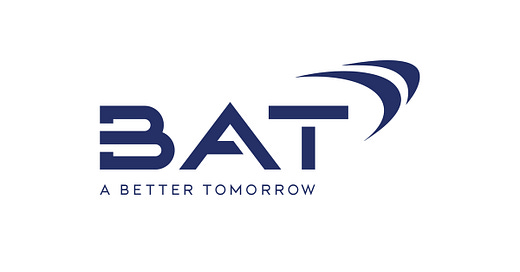You might have heard about the recent consent order between the Federal Competition and Consumer Protection Commission (FCCPC) and British American Tobacco Nigeria (BATN).1
If you haven’t, the consent order was the conclusion of an investigation, which commenced in August 2020, so this didn’t just happen overnight. The order includes a number of remedies agreed between the parties but perhaps the most eye-catching is that BATN agreed to pay the FCCPC $110 million as a penalty for various abuses of dominance. Importantly, because this is a consent order, it cannot be appealed.
The parties also agreed to behavioural remedies, which will see BATN cease from engaging in the relevant anticompetitive practices. In this regard, the consent order provides that BATN will be monitored for 24 months.
In this post, I will provide some context for this order; particularly focusing on how companies based in England were implicated, what the anticompetitive practices were, how the fine was calculated, and how to avoid such a fine.
Foreign entities
You might have noticed that BATN was not the only company under investigation. The FCCPC’s press release referred to ‘affiliated companies’, which are British American Tobacco Marketing Nigeria (BATMN), British American Tobacco Plc (BAT Plc), and British American Tobacco Holdings (BAT Group) (in this post, I will refer to all of them as ‘BAT’).
What is interesting is that BAT Plc and BAT Group are not based in Nigeria—they are based in England. However, they were still investigated and are bound by the remedies. This is because competition law applies to an ‘undertaking’, which is a technical term for an economic entity involved in commercial activities. Individuals, trade associations, partnerships, clubs, companies, and public authorities can be viewed as undertakings, depending on whether they are engaged in profit-making activities or not.2
Interestingly, several legal entities (including a parent company and its subsidiaries) can also be considered as a single undertaking. Therefore, since BAT Plc and BAT Group exert sufficient influence over the activities of BATN and BATMN, they can all be considered as one undertaking for the purpose of competition law.
Extraterritoriality
If you want to read more about how competition law applies to foreign entities, you can check out my previous post on extraterritoriality, where I examine the extraterritorial provisions of the Nigerian, South African, Mauritian, and Kenyan competition regimes.
In fact, there are many cases in European competition law—where the term originates from—that involve a parent company being found liable for the anti-competitive practices engaged in by its subsidiary.3
The abuse
Turning to the question that has been on everyone’s mind: what exactly did BAT do that resulted in such a huge fine? Well, the investigation found that, first, BAT was in a dominant position in many relevant markets, including in the manufacturing and distribution of tobacco products.
It is important to note that being dominant alone is not illegal but when a player is dominant, it is subject to what is called a ‘special responsibility’. Put simply, there are certain practices that a dominant player cannot engage in simply because it is dominant, and it is considered an ‘abuse of dominance’ to engage in these practices.4
In addition to being dominant, BAT was found to have abused this dominance by engaging in practices intended to exclude its competitors in at least three main ways.
First, BAT sought to prevent the products of its competitors from entering into the relevant markets. In some instances, BAT even lobbied certain government agencies to tax or impose tariffs on the products of their competitors.
Regulation v. Competition
If you want to read more about regulatory versus competition intervention, you can check out my previous post on the topic. I talk about how sector regulators might be susceptible to regulatory capture and why we need an independent competition authority to protect consumers and competition.
Second, BAT managed to obtain commercially sensitive information from its competitors (information which was and still is not publicly available) and used this in determining its business strategy and practices.
Third, BAT trained its trade reps on how to ensure that retailers displayed its products in more prominent positions, relative to those of its competitors. Of course, as a retailer, because BAT’s brands are so popular, you must listen to their demands otherwise they could pull their products and you will incur losses for not selling things that consumers want. Inevitably, some retailers decided to be brave by providing equal prominence to competing brands, some might say, they no gree for BAT. Even then, BAT specifically trained their trade reps on how to punish and penalise retailers that did not comply.
The bottom line is that the fact that BAT’s brands are popular does not and should not automatically entitle them to more prominent placement, nor should it allow them to punish retailers that choose to organise their stores differently.
Besides these abuses of dominance, BAT was also found to have engaged in other practices that violated Nigeria’s consumer protection laws. For instance, BAT prematurely introduced a product into the Nigerian market without complying with the prevailing tobacco control and public health regulations.
The fine
I suppose the next question on people’s minds is: how did the FCCPC arrive at the figure of $110 million?!
It is worth noting that competition law penalties are typically large, and they need to be in order to deter companies from distorting markets, either by restricting access for competitors, or directly imposing unfair or unreasonable terms on consumers.
Last year alone, Intel was fined $410 million by the European Commission (EC) for abusing its dominant position in the market for computer chips; Apple and Amazon were fined $210 million by Spain’s competition authority for colluding to restrict the number of resellers of Apple products on the Amazon website in Spain; and Illumina was fined $470 million by the EC for implementing its merger with GRAIL before approval by the EC.
That said, with respect to BAT, the penalty was calculated in accordance with the FCCPC’s Administrative Penalties Regulations, 2020, which provides specific base sums for the various offences under the Federal Competition and Consumer Protection Act, 2018. It also provides many aggravating and mitigating factors that the FCCPC can take into account when determining what penalty to impose.
For instance, the fact that BAT eventually entered into the FCCPC’s Cooperation and Assistance Framework served as a mitigating factor (this framework allows companies or individuals to voluntarily cooperate with or assist the FCCPC in the course of an investigation in exchange for immunity or reduced penalties).
Meanwhile, the fact that there were attempts made by at least one employee within BAT to obstruct the execution of the FCCPC’s search warrant and also that there was an initial lack of cooperation with the investigation by BAT would have constituted aggravating factors.

How to avoid
The final looming question is probably along the lines of how to avoid this befalling your company going forward. First and foremost, and this should be obvious: don’t engage in anticompetitive practices!
However, if you are accused of doing so by the FCCPC, there are still ways to mitigate or reduce a hefty penalty.
For starters, be as forthright as possible with the FCCPC, maybe by entering into the cooperation and assistance framework. Frustrating the investigatory process will only aggravate the situation and increase the chances of a hefty penalty.
Also, ensure you seek legal advice from a lawyer that can engage the FCCPC on the technical issues in competition law. Competition law is not like other areas of law; it requires an understanding of economics (i.e., competition economics) in order to interpret the terms, tests, and concepts within the legal framework. For instance, how to conduct a ‘market definition’, what constitutes a ‘competitive constraint’, how to assess ‘efficiencies’ and weigh them against ‘anti-competitive effects’, or how to ascertain ‘pro-competitive effects’. Therefore, only a competition law expert can help you navigate this new regulatory terrain by speaking the language of the FCCPC and presenting your case in the most persuasive way.
In the end, this investigation shows that competition law is here to stay, and we must all pay attention to, and scrutinise, the developments within the space.
Disclaimer: I worked with the FCCPC on aspects of this investigation.
The concept of an undertaking is based on the function in question. For instance, an entity can be an undertaking when it is engaged in some activities but not in others. If it is engaged in charitable activities or acts in a public capacity, it is not considered an undertaking for those purposes. But it would be considered an undertaking when the activity in question could yield profits. Furthermore, an entity can be an undertaking regardless of its legal status or how it is financed. See, Ezrachi, “The Concept of Undertaking” in EU Competition Law: An Analytical Guide to the Leading Cases (2021).
See, Case C–73/95P Viho Europe v Commission [1996] ECR I–5457; and Case C–97/08P Akzo Nobel v Commission [2009] ECR I–8237.
The main reason for the special responsibility is that the business practices of dominant players have an outsized effect in their respective markets. This places them in a unique position where they can unilaterally stifle or significantly restrict competition in the whole or large part of a market. Regardless of how you arrived at your dominance, this does not give you the ability to prevent competition that could challenge or reduce your dominance.






